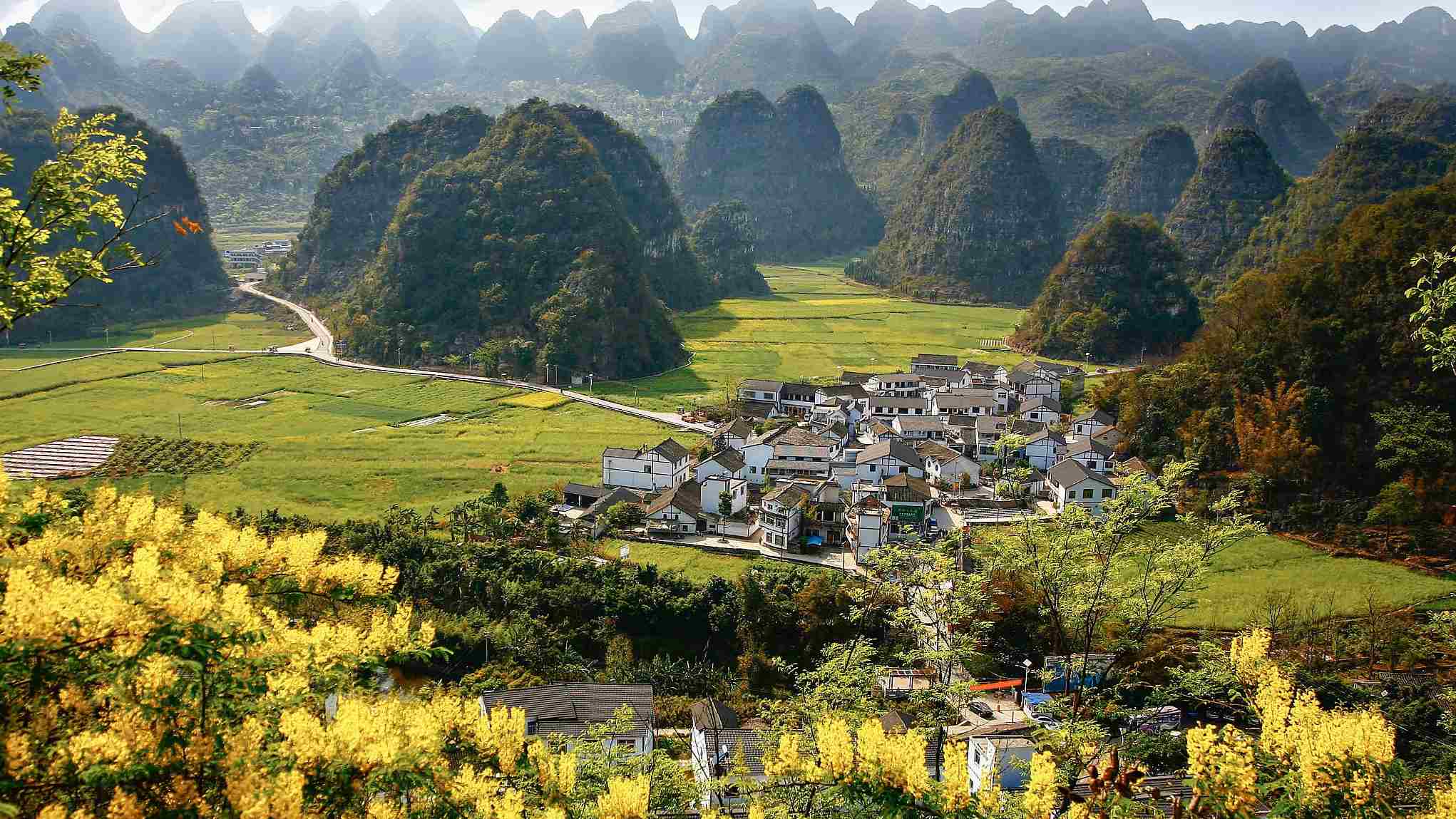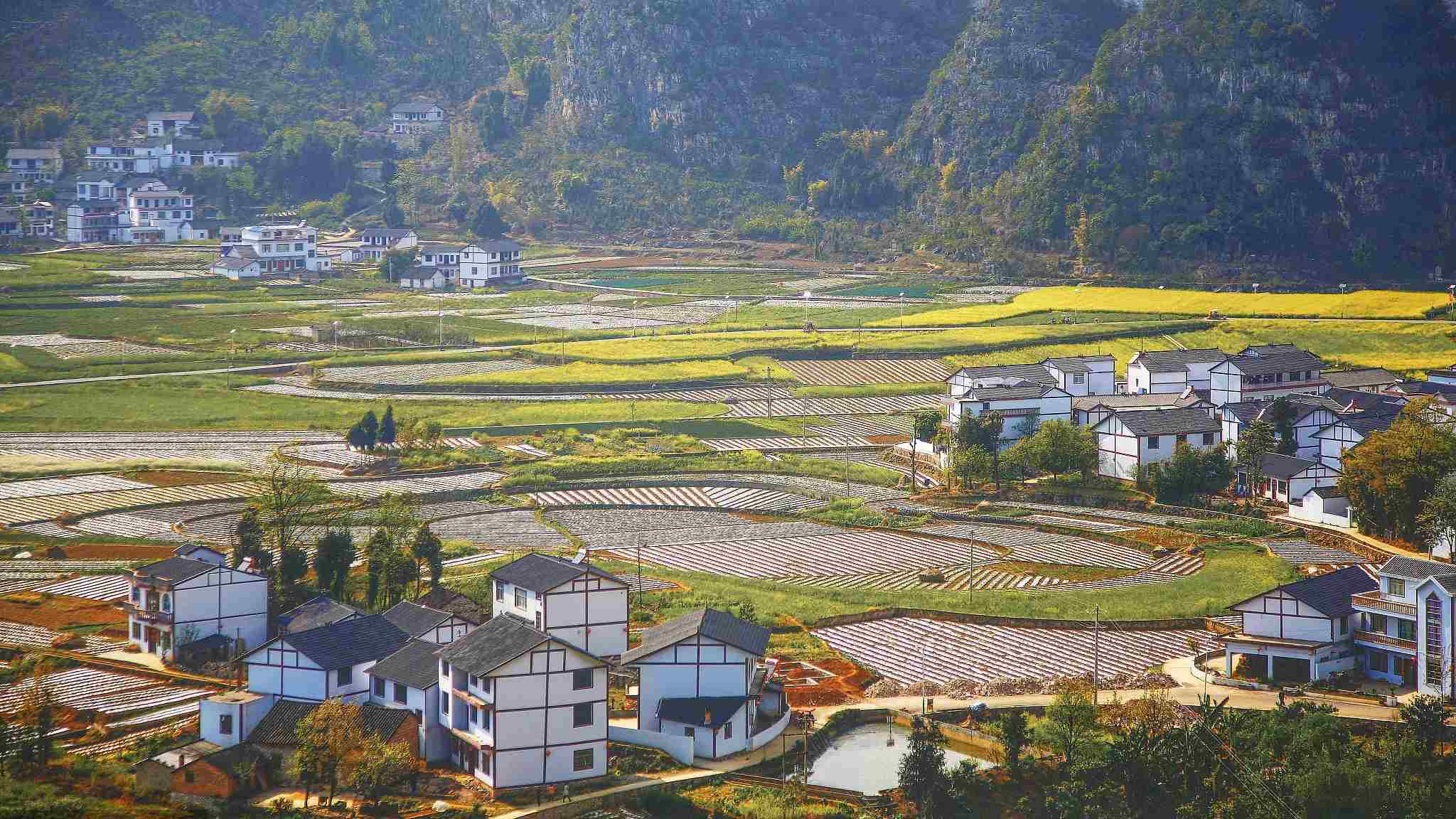
Travel
15:02, 10-Aug-2018
Liupanshui city develops tourism and agriculture industries to alleviate poverty
Updated
14:44, 13-Aug-2018
CGTN

Liupanshui, a city in southwest China’s Guizhou Province, is developing tourism and agriculture industries to effectively alleviate poverty.
Over 4,000 residents now sell agricultural products and their expected income has risen to around 2,000 to 3,000 yuan (about 293 to 440 US dollars) per month, Zhu Meicong, a tour guide in a Yi minority village near Liupanshui, told journalists of the 2018 Liupanshui Belt and Road & ASEAN Media Tour.
The majority of tourists come from China’s Hainan Province and Malaysia, Zhu said.
Lanten, a local tourism company, now provides villagers with jobs as well as the company shares. Gu Yungu, a 33-year-old Tuole villager who works with the company, said she now earns a monthly salary of about 3,000 yuan (about 440 US dollars).
During the summer, around 100,000 tourists visit this area every month.
Tourists of all ages come to enjoy the relaxing village environment, with elderly tourists arriving for holiday stays for an average of two weeks, whereas young people only stay for a few days before returning to cities and towns for work.

Villages in Liupanshui City. /VCG Photo
Villages in Liupanshui City. /VCG Photo
In the past, locals in this village relied heavily on agriculture, making money from their land that was often unreliable. However, now they have income both from selling agricultural products as well as from becoming shareholders in the local tourism industry.
Another such village, Tuole of Panzhou City, has adopted the same three transformation strategies to help its villagers get rid of poverty: transforming resources to assets, capital to equity and farmers into shareholders.
Many Tuole villagers have enjoyed both direct and indirect benefits from tourism, operated by the Ginko Tourism Investment Company, an enterprise created two years ago. The company helps Tuole villagers create more than a thousand different products which are then sold throughout Guizhou Province.
The company has invested 1.5 billion yuan in tourism development and Tuole’s agricultural industry for a number of years, benefiting the entire population of 5,000 people.
Products that are grown here, such as the red-hearted kiwifruit, can be supplied to different companies to make other products, said the deputy manager of Ginkgo Tourism Investment Company, adding that after two years the livelihood of locals has dramatically improved.
Tao Zhengxue, chief executive of Niangniangshan Plateau Wetland Eco-agriculture, Tourism Development Co. Ltd., said that just six years earlier, people here were suffering from poverty. With the help of the central government, the local government implemented three transformation strategies that eventually eradicated poverty.
“Niangniangshan focuses on three objectives: improving the agricultural industry by growing fruit in the best way possible, improving the living conditions of local people and developing industries in the region. Locals sell a variety of products including prickly pears, blueberries and red-hearted kiwifruit. All achievements we have gained today are thanks to the Communist Party of China,” Tao added.
China’s 40 years of reform and opening-up has so far lifted nearly 800 million people out of poverty and pushed the country forward, now ranking as the world’s second-largest economy.
Liupanshui’s natural environment is well preserved and charming. Known for its cool summer months and fresh air, Liupanshui attracts many Chinese tourists wishing to escape the summer heat. Last year, Liupanshui received more than 30 million visitors and saw over 20 billion yuan in revenue from tourism.
Guizhou has a plethora of unique sites to visit, including Changjiaomiao minority village, the Zangke River and the Ginkgo forest in Tuole village, and boasts activities for all families including a 10-kilometer cable car network and even a ski resort.
Source(s): Xinhua News Agency

SITEMAP
Copyright © 2018 CGTN. Beijing ICP prepared NO.16065310-3
Copyright © 2018 CGTN. Beijing ICP prepared NO.16065310-3